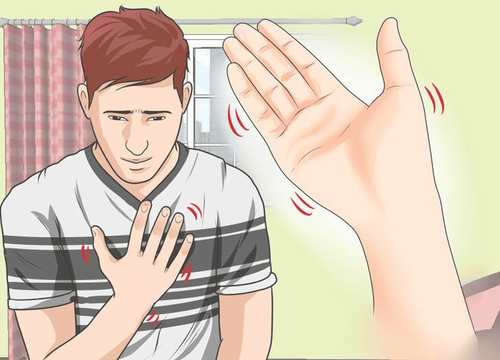This is an automatically translated article.
In today's modern world with a lot of pressure and stress, positive thinking plays a very important role in psychological balance. Positive thinking in our lives helps us manage stress and can even improve our health.
1. What is positive thinking?
Positive thinking means approaching life's challenges with a positive outlook, focusing on the good in any situation.
Positive thinking does not mean looking at life through rose-colored glasses, nor does it mean that we will ignore bad things. Instead, we take on the discomfort in a more positive and productive way.

Sức mạnh của suy nghĩ tích cực sẽ giúp bạn sống vui vẻ và lạc quan hơn
2. Benefits of Positive Thinking
The health benefits of positive thinking include:
Increases life expectancy Lowers rates of depression Decreases levels of distress Increases resistance to common colds Better physical and psychological health more resilient Better heart health and reduced mortality from cardiovascular disease Better problem-solving capacity during difficult and stressful times The power of positive thinking helps us cope better stressful situations, reducing the health effects of stress on the body. Positive and optimistic people also tend to live healthier lives, be more physically active, have a better diet, and don't abuse alcohol or tobacco.
3. Identify negative thoughts
Before building positive thinking, one must be aware of negative thoughts in order to change them:
Only pay attention to the negative side of things: you completely ignore the good and focus only on bad things. Blame yourself: when something bad happens, you always blame yourself. Pessimistic reasoning: you always think the worst will happen. One-sided thinking: you see problems only good or bad. When you see a negative thought, try to stop it and shift your focus to a positive one.

Suy nghĩ tích cực trong cuộc sống là một yếu tố quan trọng
4. Practice positive thinking
Once we control our negative thoughts, that's when we look at the problem in a positive way. There are many ways to think and act in a more positive way, including:
Laugh more. One study found that people who smile (or even fake a smile) during a stressful task feel more positive afterward. Of course, the effect will be greater if it is a sincere smile. So take your time and find humor in people or things that make you laugh. Reassess the current situation. When something bad happens, instead of getting frustrated, let's find the positive side of the problem. For example, when you are stuck in traffic for a long time, remember how comfortable you are in the car. Take the time to read a book, listen to music or watch a movie you like. Visualize the bright future you can achieve. Think in detail about your good prospects for the future in terms of career, relationships, and health, and write that down. Research shows that when we imagine our lives going well, we are happier now. Focus on your strengths. Every day think about one of your strengths, plan how to use that advantage that day, and execute it. People who did this in one study felt happier and had reduced symptoms of depression. Build a healthy lifestyle. Regular exercise and a scientific diet are the keys to psychological balance, improving mood and reducing stress. In a nutshell, positive thinking is looking at problems in a positive way. To have positive thinking in life, we must identify the current situation, make plans for the future, focus on the strengths of the present problem.
Please dial HOTLINE for more information or register for an appointment HERE. Download MyVinmec app to make appointments faster and to manage your bookings easily.
Reference source: webmd.com - mayoclinic.org













